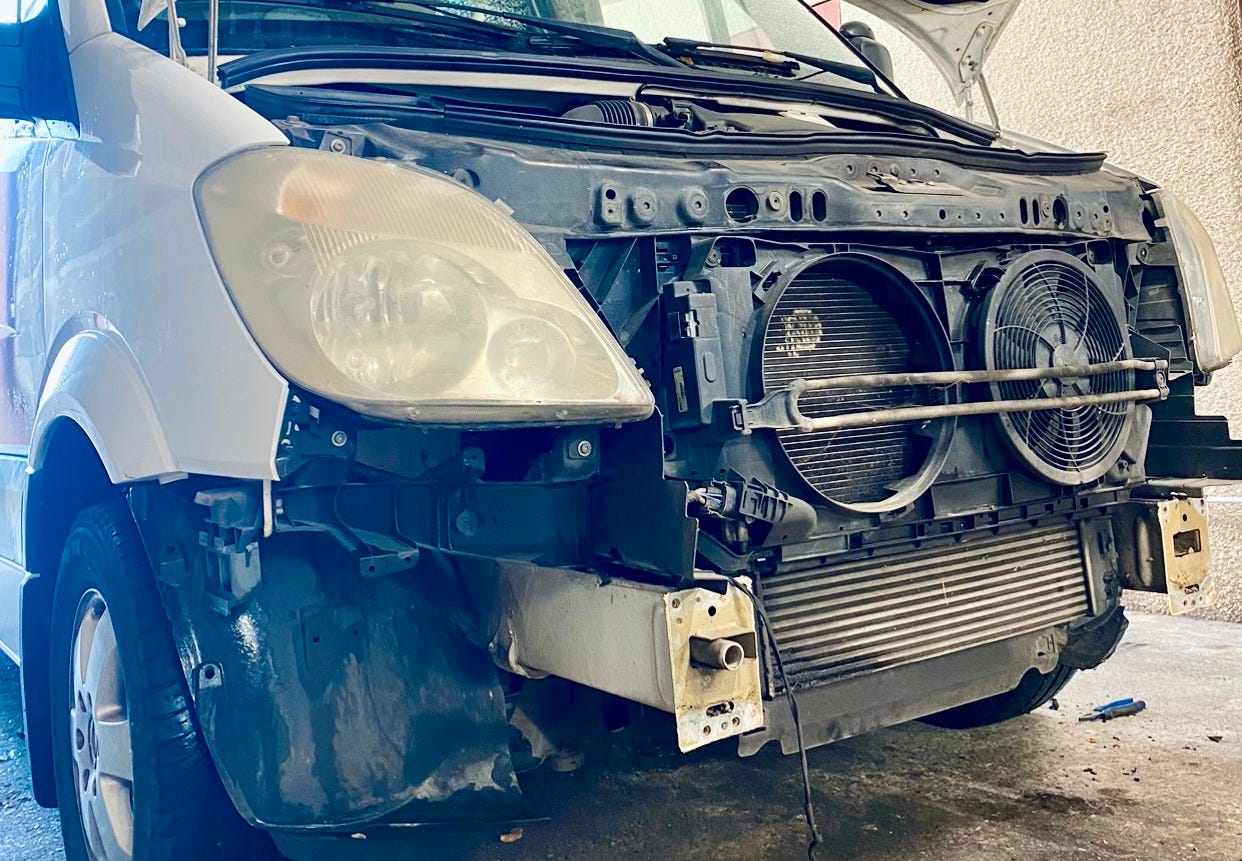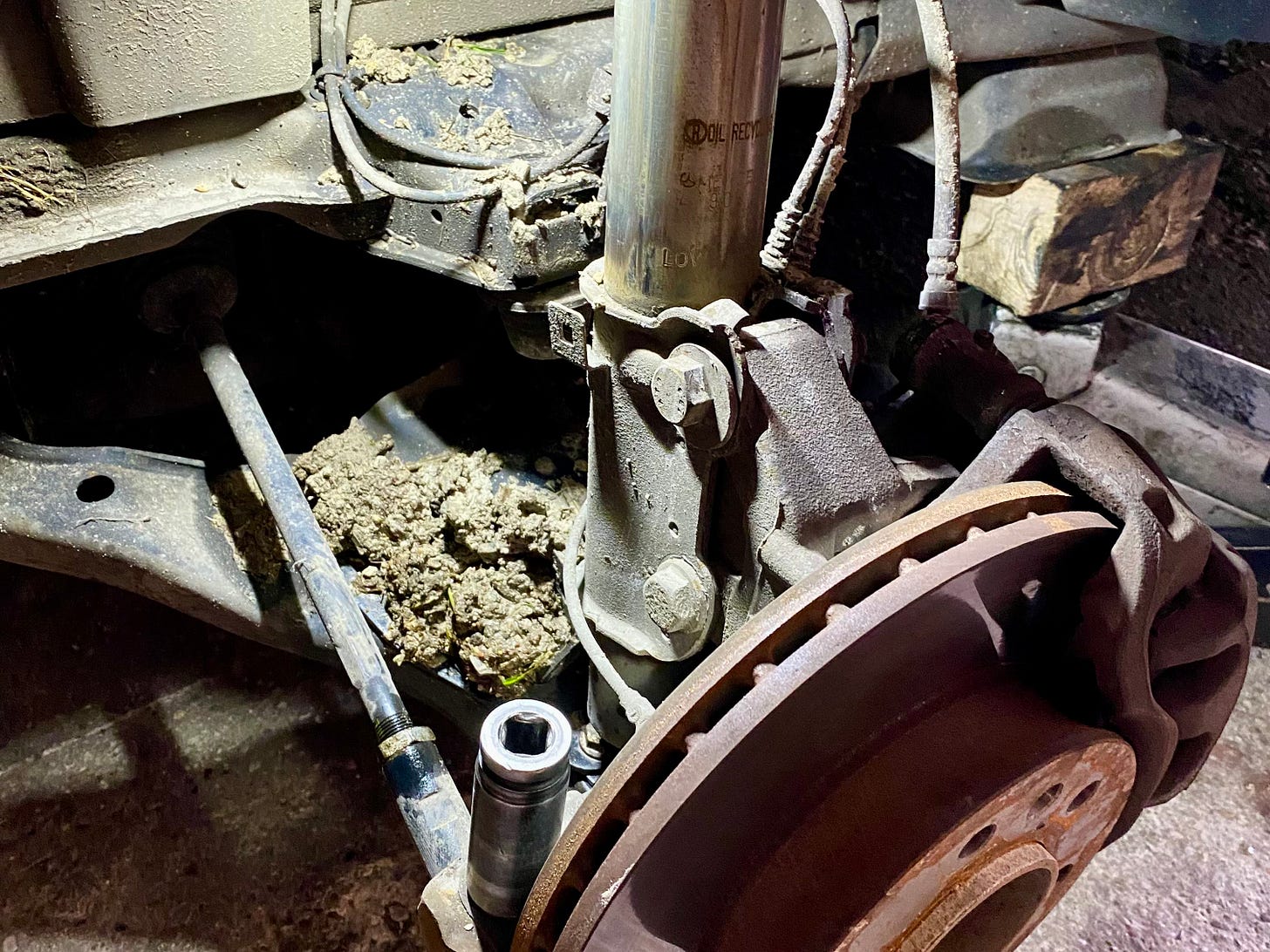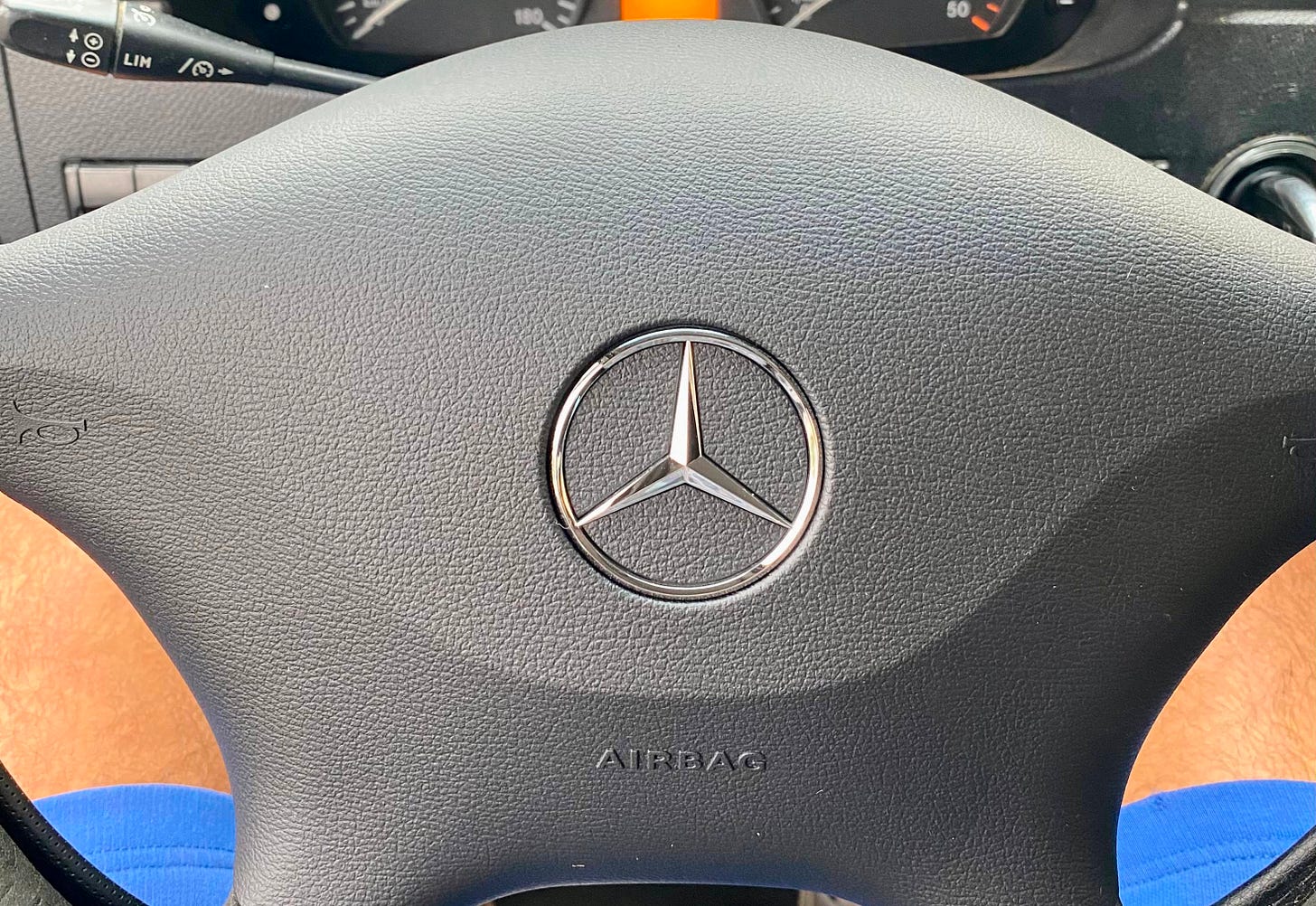20. What to look for when buying a used camper
After countless lessons in mechanics on the road, we've nailed down the key recs to avoid major headaches when buying a used vehicle.
When we decided to buy a second-hand van, we knew we were in for a challenge. Neither of us had any experience with cars, let alone mechanics or anything remotely related.
Sure, this wasn’t my first vehicle as I’d briefly owned an old Jeep Cherokee before settling on a Toyota Corolla, which we still have. But buying a van was a whole different ballgame. This wasn’t just a vehicle; it was going to be our home for years to come!
What to look for when buying a used camper
FYI, I’ve learned everything in this article through trial and error, so buckle up, here we go!
First things first, avoid cargo vans at all cost, even if they’ve been well maintained/looked over. I rode with cargo drivers before (UPS, DHL etc), they don’t care one bit about these vehicles, because they’re not theirs. Their suspensions are usually dead because of how fast they drive them. These guys drive over sidewalks, and most of them think “speed“ in speed bumps means they have to go over them as fast as they can.
Also, avoid “city” cargo vans (or vans driven mainly in town) as they’re likely to come with clogged injectors and a used up clutch. Expect issues with your turbo as well. Both parts a nightmare to change and they’re quite costly too.
We bought our Sprinter from an independent plumber. Some craftsmen and women treat their rides better than their families. After all, their livelihood depends on them running properly. Ours was super clean.
Bonus points if the person lives in the countryside, which would mean they usually drive long distances.Always get an invoice: Avoid under-the-table deals when buying a secondhand vehicle. Without an invoice, you have no legal recourse if something goes wrong. Learned this the hard way.
A spotless engine bay is a red flag. Sellers sometimes clean it to hide oil leaks or other issues. Look very closely if that’s the case, unless the camper in questions has low mileage, in which case the likelihood of it having major defects is low (but still present).
By the same token, check for repainted areas inside the engine compartment. This can indicate past repairs. Inquire about that and make up your mind once you have all the details.
Review the service history. Avoid vehicles maintained by the seller’s "friend" or a mystery garage if you can. Ask for receipts and proof of part replacements like oil filters and air filters if the person does their own oil changes. Inquire about the oil brand they use, how often they change it, etc.
By the way, if there’s no recent invoice, change the oil and check all fluid levels immediately after purchase. I do it systematically, no exceptions.
Clutch condition (for manual vehicles):
Here’s a quick test you can run before buying your used vehicle:
Warm up the engine.
Put the car in neutral, engage the handbrake.
Shift into 4th or 5th gear and slowly release the clutch.
If the engine stalls, the clutch is fine. If it keeps running, the clutch likely needs replacing.
If our clutch were to give in, it could cost up to €700 for the clutch alone. Expensive!
Check if the gearbox has been replaced before: Learned this at my transmission fluid change but if the serial number is engraved directly on the gearbox, it's original. If it’s mounted on a metal plate, your gearbox has been replaced before. worth keeping in mind.
Inspect for rust. Vans and utility vehicles are often parked outdoors, making rust a common issue. Inspect the entire chassis carefully and avoid buying campers from owners in cold cities. In winter, these areas use road salt, which significantly accelerates corrosion.
This one is pretty straightforward but never buy a vehicle with an engin light (or any light) on, even when the owner claims that “it’s nothing”. Engin lights don’t just come on for no reason.
Case in point, my engin light came on about a month ago. I posted in a bunch of forums looking for potential ideas as to what it was due to. Many people laughed it off by saying “mine’s been on for X years, dont worry, just drive on”.
Turns out it was my censors, so it wasn’t “nothing”. It never is, even when people claim that “no one could fix it so it’s unfixable”. That’s not how it works.Check the tires. Some garages overlook worn-out tires during inspections, so check them yourself. We’ve just had to change our set of tires (all four!), it’s costly! If they’re worn out, you can negotiate the price with that in mind.
Test the air conditioning. If you're buying in winter, cold air outside might make it seem functional when it actually isn't. It happened to us. Repairing our AC cost us 160 bucks, it ain’t cheap.
If all these boxes have been checked, take it for a test drive. But first:
Make sure the engine is cold when you start your potential van for the first time. Some sellers may warm up the engine before a test drive to mask issues.
For example, before our Corolla’s gearbox failed (replacement cost: €2000), shifting into gear was nearly impossible when cold. However, after a few minutes of driving, once the engine warmed up, the gearbox functioned perfectly. If I had been a dishonest seller, I could have driven it beforehand, and the buyer wouldn’t have noticed the problem at all.Similarly, after test-driving the vehicle, turn it off and restart it immediately. Some starter issues only appear when the engine is hot, not when cold. We’re currently experiencing this with our Sprinter. Its starter struggles when warm but works fine when cold. A replacement costs around €250, so we plan to change ours soon before it gives in.
The first year of ownership is usually the hardest. Expect some repairs and maintenance as you get to know the vehicle. As mentioned in my last post, take out 10 to 15% of your budget for possible repairs, you’ll need it, trust me!
Buying a used van can be overwhelming, but doing your homework before purchasing will diminish the risks of it breaking down shortly after.
Thanks for reading, I hope this helps!
Till next week,
T_









Great tips! We bought our van from a seller who deals only in used vans, mostly for contractors. We hit it off with the owner when we told him our plan to turn it into a camper so we could travel - he hadn't had many inquiries for that purpose at the time. But he was super knowledgeable and explained pros & cons of different models he had onsite. And yet, after test driving the one we did end up buying, I hemmed and hawed so much, he asked, "What's holding you back?" I said, "I'm afraid of driving this van off your lot and having it break down!" He said, "Well, how about if I give you a warranty?" I suspect that isn't something he does routinely, and it was for a limited amount of time and miles, but it was enough to get me to buy. And we did have a problem before the warranty ran out, which he covered 100% with no complaint, so I know we were very lucky. All in all, it's been a great van.
Good comprehensive list. I’d love to add checking how long people have owned a vehicle. A quick sale on a vehicle owned for a few weeks with high mileage likely means something bad is up. I had an engine failure on a van I bought with precisely that reason.
Vehicles are on of them things where you learn by doing - and often getting it wrong.